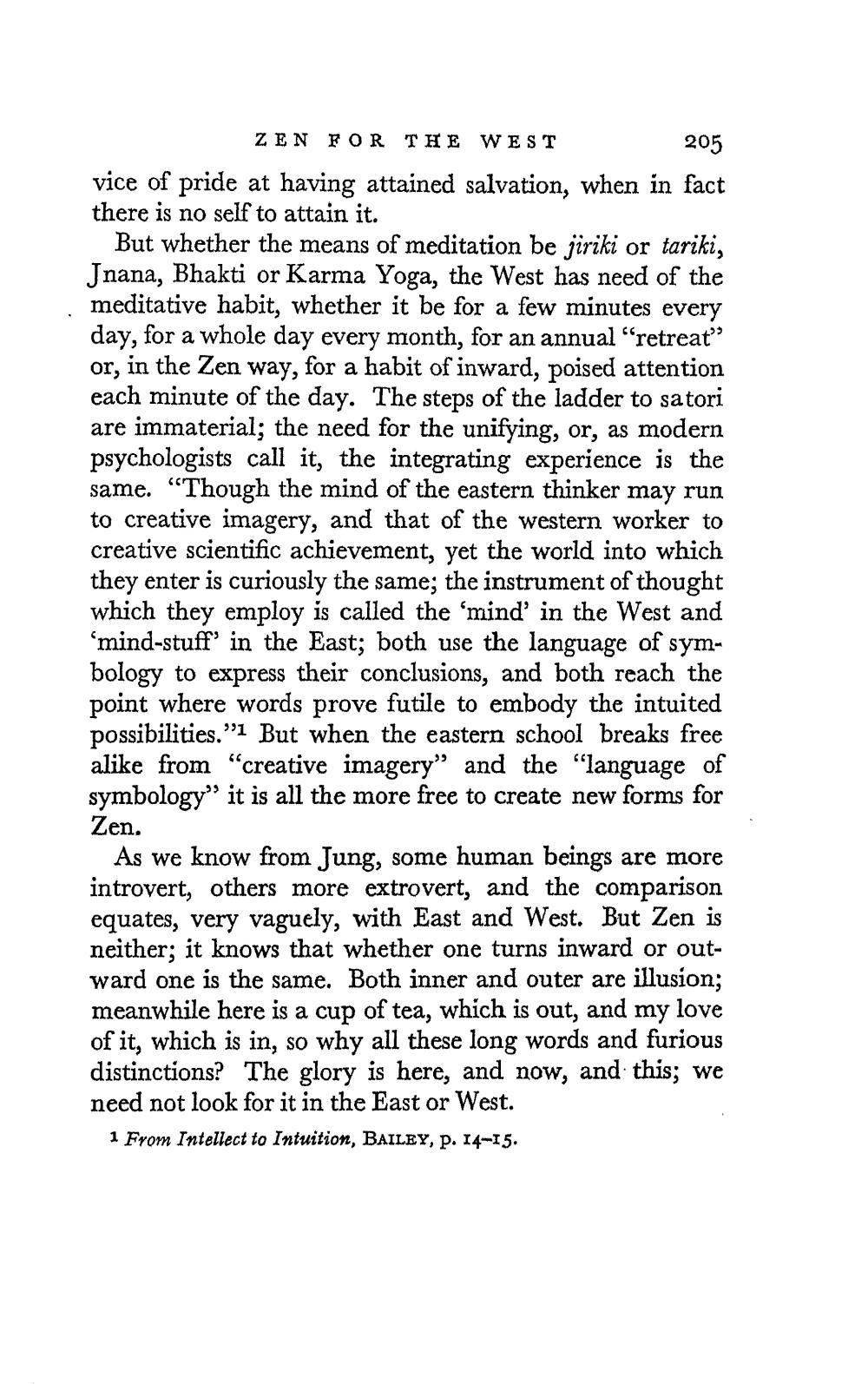________________
ZEN FOR THE WEST
205 vice of pride at having attained salvation, when in fact there is no self to attain it.
But whether the means of meditation be jiriki or tariki, Jnana, Bhakti or Karma Yoga, the West has need of the meditative habit, whether it be for a few minutes every day, for a whole day every month, for an annual retreat" or, in the Zen way, for a habit of inward, poised attention each minute of the day. The steps of the ladder to satori are immaterial; the need for the unifying, or, as modern psychologists call it, the integrating experience is the same. “Though the mind of the eastern thinker may run to creative imagery, and that of the western worker to creative scientific achievement, yet the world into which they enter is curiously the same; the instrument of thought which they employ is called the 'mind' in the West and ‘mind-stuff' in the East; both use the language of symbology to express their conclusions, and both reach the point where words prove futile to embody the intuited possibilities.”I But when the eastern school breaks free alike from "creative imagery" and the "language of symbology" it is all the more free to create new forms for Zen.
As we know from Jung, some human beings are more introvert, others more extrovert, and the comparison equates, very vaguely, with East and West. But Zen is neither; it knows that whether one turns inward or outward one is the same. Both inner and outer are illusion; meanwhile here is a cup of tea, which is out, and my love of it, which is in, so why all these long words and furious distinctions? The glory is here, and now, and this; we need not look for it in the East or West.
1 From Intellect to Intuition, BAILEY, P. 14-15.




